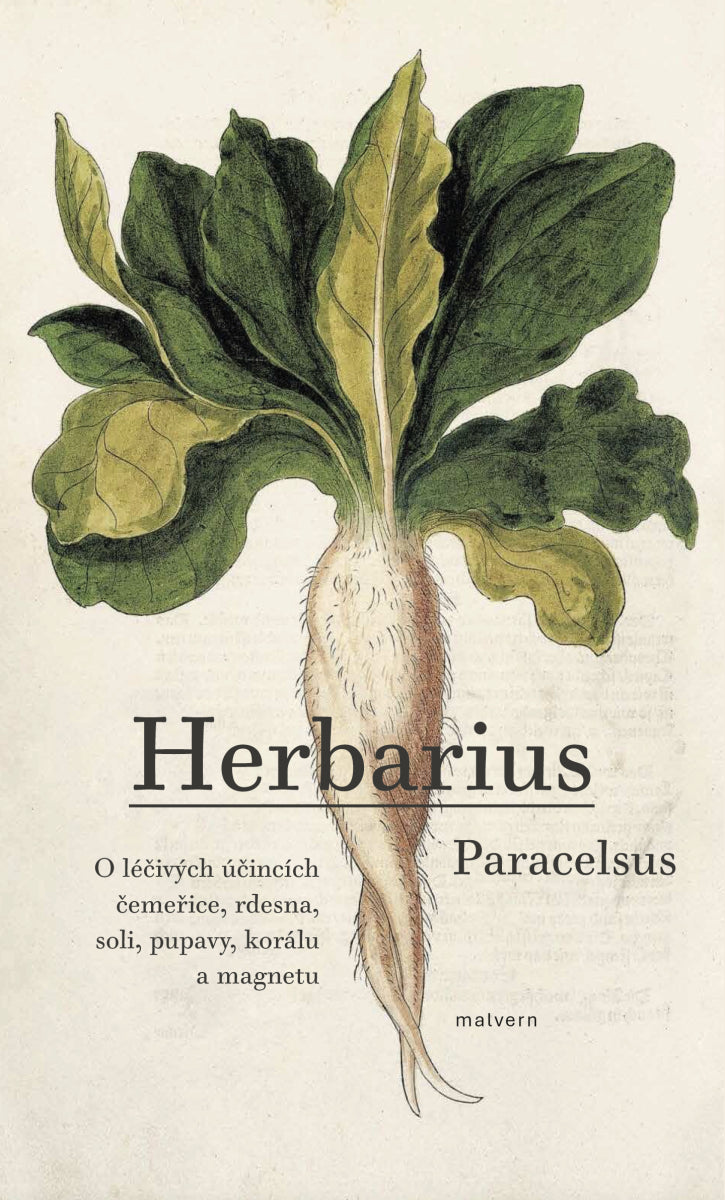Description
The treatise 'Herbarius' is not among those bulky and well-structured herbals that enjoyed great attention in the 16th century. Its author, the Swiss physician, natural philosopher, alchemist, and lay theologian Theophrastus von Hohenheim, known as Paracelsus (1493-1541), did not conceive it that way. This seemingly somewhat disorganized text likely comes from Paracelsus's early creative period, and the author translates only a few chapters in which he discusses not only the medicinal effects of herbs such as hellebore, knotweed, and dandelion but also the effects of salt, corals, and magnetite. He emphasizes that domestic natural remedies are more effective than medicines imported from overseas, criticizing contemporary physicians for relying too much on authorities and not enough on their own experience. He also urges them to seek the 'pearl' in medicinal substances - that is, the effective inner essence. This theme, also related to the alchemical quest for longevity, is somewhat obscured in the treatise 'Herbarius,' written for the ordinary reader. Nevertheless, it is a significant motif for Paracelsus, who became famous as a proponent of chymiatrics, that is, medicine working with chemically (alchemically or spagyrically) prepared medicines.
Information
Author: Paracelsus z Hohenhe Philippus Theop
Publication date: May 13, 2025
Manufacturer: Mgr. Jakub Hlaváček, Ph.D.
Genres: Botany, Books, Specialized and technical literature, Natural sciences
Type: Books - paperback
ISBN/EAN: 9788075305633

